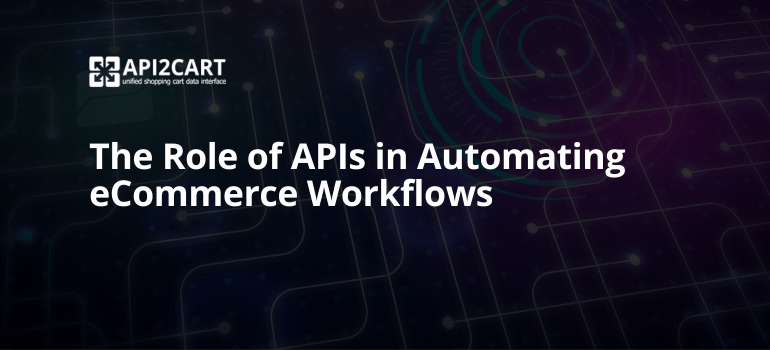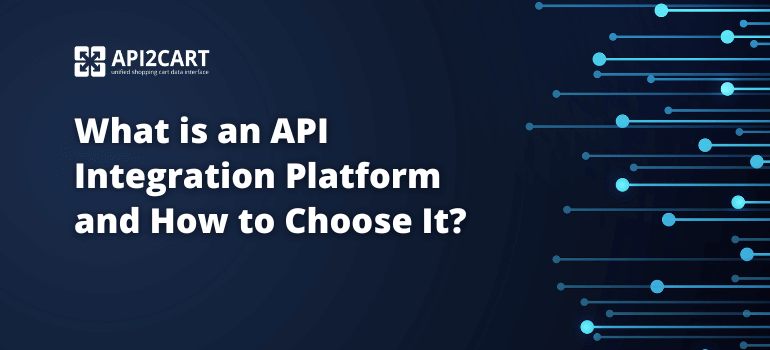
Introduction
In the fast-moving world of eCommerce, businesses need to find ways to improve operations, reduce mistakes, and offer smooth customer experiences. As online sellers manage orders, stock, deliveries, and customer interactions across many platforms, manual work becomes less efficient and can lead to errors. Therefore, automating these tasks through API-driven solutions is essential to remain competitive.
The Role of APIs in Modern eCommerce
APIs (Application Programming Interfaces) are key tools that allow eCommerce software providers to connect different systems. They enable data to flow between platforms in real time, automating tasks like updating inventory, processing orders, or connecting with shipping carriers. As a result, APIs help businesses improve efficiency, reduce costs, and provide better service to customers.
What is API-Driven Automation in eCommerce?
API-driven automation refers to using APIs to automate and simplify complex workflows in eCommerce. For eCommerce software providers, APIs are essential tools that allow different systems like eCommerce platforms, marketplaces, and backend systems to communicate and share data in real time, reducing errors and improving efficiency.
How APIs Enable Seamless Operations
API-driven automation in eCommerce uses APIs to automatically handle tasks or exchange data between different systems. APIs act as go-betweens, allowing systems like shopping carts, ERP software, and shipping services to interact and update each other without human input. Moreover, by automating these processes, eCommerce software providers can help merchants save time and focus on growing their business.
How Does API-Driven Automation Work in eCommerce?
Connecting and Synchronizing Systems
API-driven automation connects different eCommerce systems, helping software run more smoothly and efficiently. For eCommerce software providers, this approach helps their customers by reducing errors and cutting down on manual work. Here's how it works:
- Connecting Systems Through APIs
APIs connect eCommerce systems, such as platforms like Shopify, Magento, and WooCommerce, to other tools like CRM, ERP, and shipping systems. These connections allow real-time data exchange, ensuring all systems stay in sync.
- Automating Key Workflows
APIs help automate many key workflows, including:
- Inventory Management: Keep stock levels synchronized and prevent overselling;
- Order Processing: Automate order updates like confirmations and tracking;
- Product Data Synchronization: Ensure product details stay consistent across platforms;
- Shipping and Logistics: Connect automatically with shipping services for label creation and tracking;
- Customer Data Management: Sync customer information and purchase history.
- Event-Driven Automation with Webhooks
Webhooks allow systems to send notifications when specific events happen, such as new orders or inventory changes.
- Real-Time Data Exchange
Real-time updates ensure accurate stock and order details, preventing issues like overselling. Businesses can provide their customers with the most up-to-date information.
- Customization and Scalability
APIs can be customized to meet the unique needs of different businesses. Thus, as a business grows, its automation processes can easily scale to handle more transactions.
- Error Handling and Monitoring
Built-in monitoring and error-handling tools ensure that issues are detected and fixed quickly.
- Integration with Third-Party Tools
API-driven automation integrates with third-party services like ERPs, CRMs, and shipping platforms, creating a fully connected system.

Key Benefits of API-Driven Automation in eCommerce
Operational Efficiency and Accuracy
API-driven automation improves eCommerce by connecting systems, reducing errors, and speeding up processes. For eCommerce software providers, using APIs gives them an edge over competitors. As a result, businesses can improve workflows and provide better customer experiences. Key benefits include:
- Improved Operational Efficiency: Automate repetitive tasks, speed up workflows, and get real-time updates.
- Enhanced Data Accuracy: Reduce errors and keep product, order, and stock data consistent across all systems.
Scalability, Savings, and Flexibility
- Scalability for Growing Businesses: Easily expand to new platforms and handle more transactions.
- Cost Savings: Reduce the need for manual labor and cut custom development costs.
- Faster Time-to-Market: Quickly integrate new features or sales channels using APIs.
- Flexibility and Customization: Adapt workflows to meet specific business needs.
Competitive Advantage
- Competitive Advantage for eCommerce Software Providers: Add value with features like real-time inventory sync and automated fulfillment.
- Integration with Third-Party Systems: Seamlessly connect with ERP, CRM, and shipping services for full automation.

Using API2Cart for API-Driven Automation in eCommerce
Unified API for 60+ Platforms
API2Cart is a unified API integration platform that connects with over 60 eCommerce platforms and marketplaces, such as Shopify, Magento, WooCommerce, BigCommerce, OpenCart, and PrestaShop. It ensures real-time synchronization and automates workflows for product, order, customer, and inventory data.
Automation with API2Cart Methods
- product.update, product.list — manage product data;
- order.list, order.update — track and sync orders;
- customer.add, customer.list — manage customer profiles;
- stock.update — prevent overselling;
- Shipping updates and tracking management via API calls.
API2Cart eliminates the need for multiple integrations and helps businesses scale. Moreover, it saves time and resources, allowing providers to focus on their core business. Book a FREE demo to get started.
Conclusion
API-driven automation is transforming eCommerce by connecting systems, improving efficiency, and ensuring real-time synchronization. Thus, for eCommerce software providers, it is essential to deliver solutions that help businesses stay ahead of the competition. API-driven automation reduces manual errors, saves time, and enhances the customer experience.



